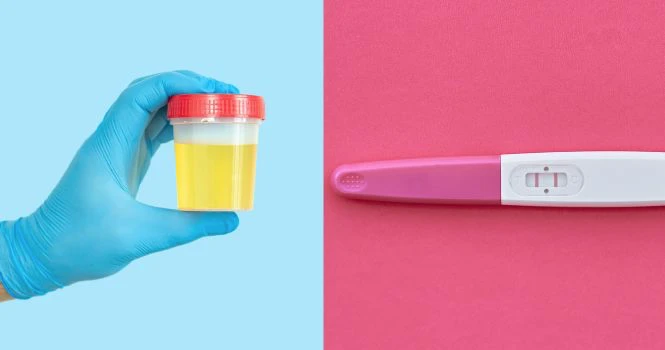A negative hCG blood test result can be a source of confusion, especially for women who believe they are pregnant.
Human chorionic gonadotropin (hCG) is a hormone produced by the developing placenta shortly after conception, and its presence in the bloodstream can confirm pregnancy. However, there are instances when a negative hCG blood test may not be entirely conclusive.
Understanding hCG Blood Tests
There are two types of hCG tests:
- Qualitative Tests
- Quantitative Tests
Qualitative Tests
The qualitative hCG test provides a simple “yes” or “no” answer.
Examples of qualitative Tests are Urine Home Pregnancy Tests, which just detect if there is beta hCG in the Urine or not.
Quantitative Tests
The quantitative test measures the exact amount of hCG in the blood.
Quantitative tests can detect lower levels of hCG and are more sensitive than qualitative tests. Doctors typically rely on quantitative hCG tests to confirm pregnancy and monitor its progress
Reasons for a Negative hCG Blood Test
There are several reasons why a negative hCG blood test result might occur, even if a woman is actually pregnant. These reasons include:
- Testing too early: If a woman takes an hCG blood test too soon after conception, the hormone levels might not yet be high enough to be detected. In this case, waiting a few days and retesting could result in a positive outcome.
- Low-producing hCG pregnancy: In some rare cases, a woman might experience a low-producing hCG pregnancy, where the hormone levels remain low throughout the pregnancy. This can lead to false-negative results in hCG blood tests.
- Laboratory error: Mistakes can happen in a laboratory, such as sample mix-ups, contamination, or technical issues with equipment. These errors could lead to a false-negative result on an hCG blood test.
- Medications: Certain medications can interfere with hCG test results, leading to false-negative outcomes. These medications may include diuretics, anticonvulsants, and some tranquilizers. Always inform your healthcare provider about any medications you are taking.
- Ectopic pregnancy: In an ectopic pregnancy, the fertilized egg implants outside the uterus, typically in a fallopian tube. This can cause lower-than-normal hCG levels, which might result in a negative blood test.
- Miscarriage or threatened miscarriage: In the early stages of a miscarriage or a threatened miscarriage, hCG levels might decrease or fail to rise as expected, leading to a negative hCG blood test.
It is essential to consult a healthcare provider if you suspect you are pregnant despite a negative hCG blood test. Your provider can offer guidance on when to retest, suggest additional testing, or help identify any potential underlying health issues.









